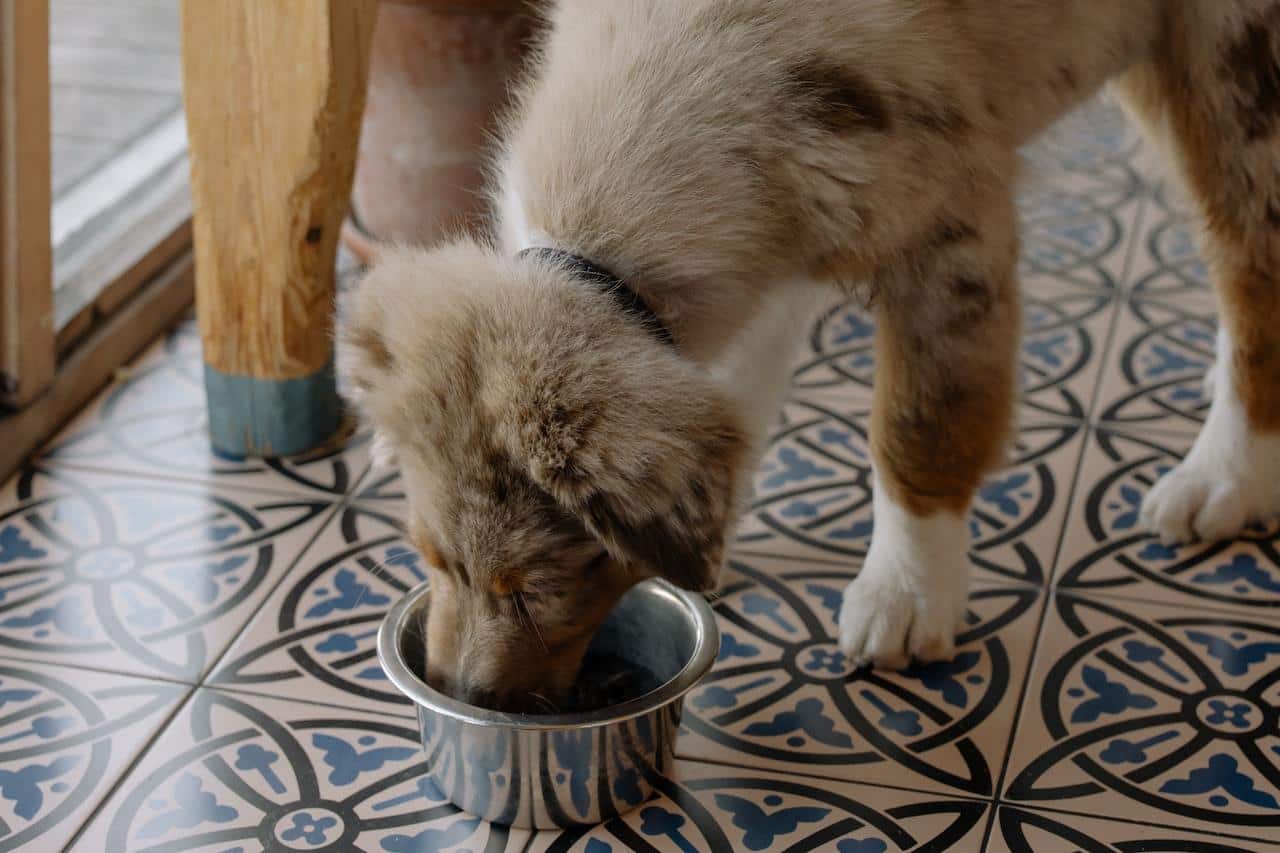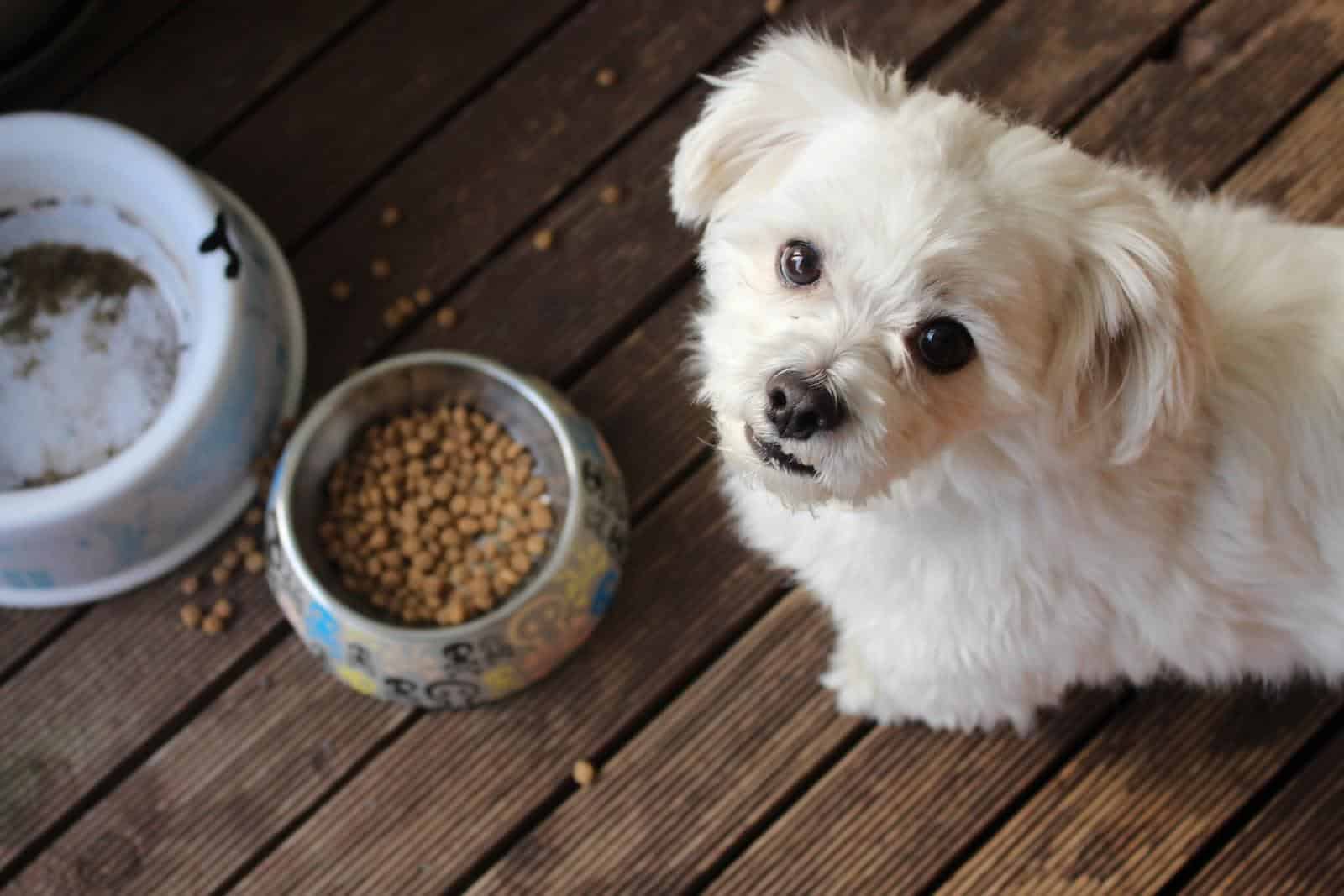As doting fur parents, we’re always on the lookout for the best food we can give our dogs, especially puppies that have more sensitive stomachs than adults. One of the most popular trends has been grain-free dog food for puppies.
While grain isn’t inherently bad or unhealthy for pups, it isn’t always the best food choice for young dogs.
Why is grain-free dog food preferred by so many pet owners? Are they really better than dog food with grains? What should you look for in grain-free dog food if you’re looking to make the switch?
We’ll take a look at this and more in this article. Let’s begin by getting a better understanding of grain-free dog food.
Block quote 3: “Many traditional dog foods contain grains that can cause allergies, obesity, and digestive problems in puppies.” – [source: Rover]
What Is Grain-Free Dog Food?
Grain-free dog food for puppies refers to dog food that’s made without any grains like corn, barley, oats, wheat, rice, and rye. It uses other sources of carbohydrates such as sweet potatoes or peas as the primary energy source for your puppy.
This type of dog food has become increasingly popular among pet owners who are looking for alternative diets for their furry friends.
Now, why would you need an alternative diet in the first place?
Benefits of Grain-free Dog Food for Puppies
Is grain-free dog food good for puppies? Grain-free dog food is often used:
To Prevent Digestive Issues
Many puppies have trouble digesting grains which can lead to digestive issues such as bloating, gas, and diarrhea. By feeding them a grain-free diet, you can help alleviate these symptoms and ensure that they are getting the nutrition they need.
Block quote 2: “Grain-free dog food eliminates these issues and provides a balanced and natural diet for your furry friend.” – [source: American Kennel Club]
To Avoid Food Allergies
Some dogs are allergic to grains. If your puppy is exhibiting hair loss accompanied by constant chewing and scratching, irritated and itchy skin, ear infections, and swollen paw pads with excessive licking, it may be allergic to the grains in its diet.
Try giving it a grain-free diet for a few days to see if the conditions improve. You may also consult a vet for more advice on what to do, especially if the symptoms appear serious.
Block quote 1: “Grain-free dog food for puppies is a great option for those looking to provide their furry friend with a natural and balanced diet.” – [source: PetMD]
Types of Grain-free Dog Food for Puppies
Grain-free diets for dogs rose in popularity during the early 2000s. Today, the niche has grown to an extent that there are several types of grain-free dog food available. Grain-free options include dry kibble, wet food, and freeze-dried or dehydrated food.
Among the three, dry kibble is the most common. You’ll find grain-free dry dog food for puppies in a variety of flavors and formulas that are designed to meet your puppies’ nutritional needs.
For additional hydration and even easier digestion, you can opt for wet grain-free dog food.
Finally, freeze-dried or dehydrated food is usually chosen by pet owners who want to give their puppies a raw food diet. This type of food is made by removing all the moisture from the food, a process that preserves the food’s nutrients and flavor while making it easier to store and serve.
Risks of Feeding Your Pet a Grain-Free Diet
Grain-free diets have their advantages but there are also known risks that are associated with them:
- Grains offer puppies vital nutrients like fiber, protein, and fatty acids.
- Grain-free diets sometimes contain large amounts of legumes to replace the carbs from grains. In 2022, the Food and Drug Administration released a report that associated legumes with a high incidence of canine dilated cardiomyopathy (DCM). DCM can lead to compilations like heart murmurs, congestive heart failure, arrhythmias, and more.
These risks can be minimized by being discriminating about the grain-free food that you choose. Always read the label to ensure that it offers complete and balanced nutrition without ingredients that can potentially harm your puppy.
Choosing the Best Grain-free Dog Food for Puppies
Before you make the switch, talk to your veterinarian, especially if your puppy has underlying health conditions or dietary restrictions. Your vet can help you choose the best type of food for your puppy based on its needs and recommend any supplements or additional nutrients to support its development.
When choosing grain-free dog food for your puppy, it’s important to look for high-quality brands that use natural, whole-food ingredients that provide a balanced nutritional profile. Look for brands that list high-quality protein sources as their first ingredients such as chicken, beef, or fish, and avoid brands that use fillers or by-products. Check for any potential allergens or ingredients that your puppy may be sensitive to.
You may also look for user testimonials like Wild Earth dog food reviews to see what others experienced.

Grain-free: A Great Choice for Puppies With Sensitive Stomachs and Grain Allergies
Grain-free diets can be beneficial for puppies with sensitive digestive systems and dogs with allergies. While there are some concerns about it not having sufficient carbohydrates and increasing the risk for DCM, they can be easily circumvented by choosing high-quality dog food and studying the package label so you can ensure proper nutrition.

